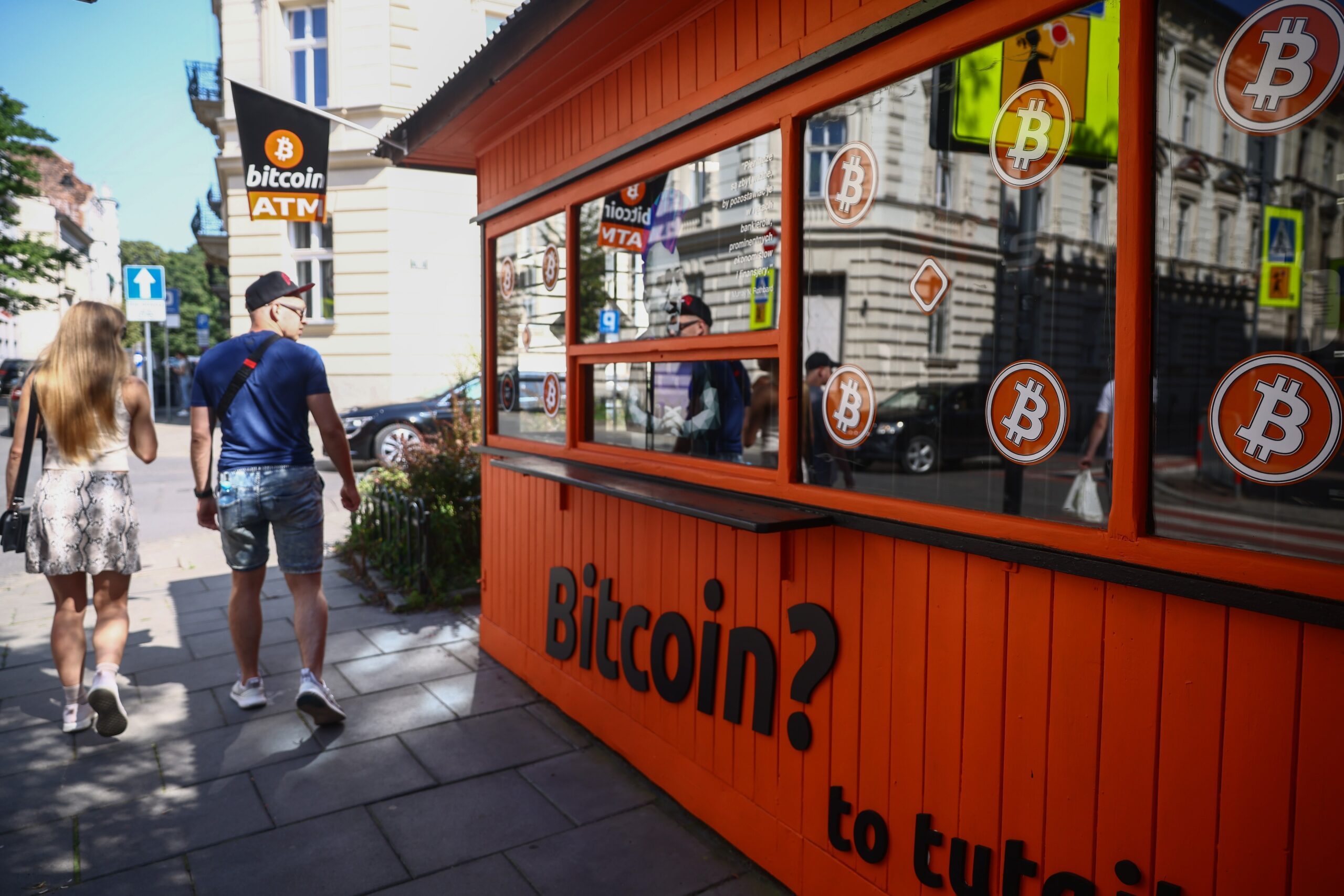[ad_1]

Beata Zawrzel/NurPhoto/Reuters
- ‘Digital gold’ idea gains traction
- UAE increasing mining capacity
- Bitcoin volatility still a problem
The concept of national bitcoin reserves is moving from theoretical discussion to geopolitical reality.
A member of Russia’s parliament has called on its central bank to consider bitcoin as a reserve asset, it was reported last week. Thirteen nations already hold the cryptocurrency, according to a report released this month by bitcoin exchange River.
The Russian proposal – and widespread speculation that GCC nations are quietly exploring similar strategies – hint at a newly elevated place for bitcoin, especially during Donald Trump’s second term as US president.
“The bitcoin race is on,” Grant McCarty, co-executive director of the Bitcoin Policy Institute in Washington, told the BitcoinMena conference in Abu Dhabi this week.
“Multiple countries have already bought bitcoin and not necessarily announced it.”
He credits Trump with accelerating global interest in bitcoin, which passed $100,000 after the president-elect named crypto advocate Paul Atkins as his pick to lead the US Securities and Exchange Commission.
Matthew Pines, head of strategy at the Bitcoin Policy Institute, told BitcoinMena the currency’s decentralised and borderless nature makes it attractive as a reserve asset. “I think every country is appraising bitcoin emerging as a geopolitically relevant asset class,” he said.
Governments are also exploring opportunities in bitcoin mining. More than 60 percent of bitcoin’s hash rate (a measure of computing power) currently resides in North America, but the UAE, Saudi Arabia and other Middle Eastern countries are working to expand their mining operations.
“Countries are going to want to stack as much bitcoin as possible,” McCarty said. “They’re going to want as many bitcoin miners as possible in their territory.”
Colin Harper, a writer and podcaster on bitcoin, suggested that countries like the UAE have the infrastructure and regulatory environment to attract mining businesses.
Miners in the region estimate that the UAE’s mining capacity is 800 to 1,000 megawatts, Harper said. The figure for Oman is about 100MW. By comparison, the US Energy Information Administration estimates that US crypto mining capacity is just over 10,000MW.
Using the most efficient equipment available today, it takes approximately 155,000 kilowatts of electricity to mine one bitcoin.
Plans are already underway to increase crypto mining capacity in the UAE. Climate technology funding platform Gigatons and blockchain company Hearst recently announced a joint venture to build a $1 billion solar farm in Abu Dhabi dedicated to crypto mining. The first phase of the project aims to generate between 50MW to 100MW.
Digital gold
Bitcoin offers several advantages for nations considering reserve diversification, BitcoinMena panellists told the delegates in Abu Dhabi.
Its decentralised nature makes it resistant to external control, unlike traditional reserve currencies such as the dollar. Additionally, its fixed supply creates a hedge against inflation, appealing to countries managing large fiscal reserves.
For the GCC, these attributes could be particularly attractive. Oil revenues dominate the region’s economies and bitcoin could help stabilise budgets when oil prices fluctuate.
Russia’s interest in bitcoin reserves aligns with its broader de-dollarisation strategy. Since the invasion of Ukraine and subsequent sanctions, the Kremlin has increasingly turned to alternative currencies to protect its economy. Bitcoin could help Russia mitigate the impact of Western sanctions.
The panellists pointed to bitcoin’s liquidity and borderless functionality as critical benefits for economies seeking to operate beyond traditional financial systems. In an October report, the US Treasury also compared bitcoin to gold, saying its primary use case “seems to be a store of value aka ‘digital gold’ in a decentralised finance world”.
US Federal Reserve chair Jerome Powell echoed these thoughts during a recent New York Times conference. “It’s just like gold, only it’s virtual,” he said.
“People are not using it as a form of payment, or as a store of value. It’s highly volatile. It’s not a competitor for the dollar, it’s really a competitor for gold.”
Although governments may be interested in adding bitcoin to their reserves, many countries lack the infrastructure and “internal dialogue” to assess it as a policy proposal, according to Pines. He added, though, that these conversations are starting to take place.
He is optimistic that the incoming Trump administration will guide other governments.
“They seem poised to take a very proactive, a very positive stance towards bitcoin, and that is likely going to set the tenor and tone for other countries to respond in kind,” Pines said.
Despite Trump’s enthusiasm, Vijay Valecha, chief investment officer at Century Financial in Dubai, said it was too premature to expect the US and Russia to launch bitcoin national reserves as he believed gold and the dollar were still seen as the safest options.
The main reason for this is bitcoin’s volatility. Valecha pointed out that bitcoin is sitting in an average annual volatility percentage range of 45 percent to 65 percent. This compares to other assets like gold, and even the US S&P 500 Index, which have shown 14 percent and 16 percent annual volatility.
“As such, holding an extremely volatile asset has its own set of cons more than any potential immediate price gain advantage by just holding the asset,” Valecha said.
Donald Trump’s son Eric also spoke at the conference, telling delegates he was “confident” bitcoin would hit $1 million – a view that might help policy makers in the GCC move forward with their rumoured plans for a bitcoin national reserve.
2024-12-15 07:01:05
[og_img
